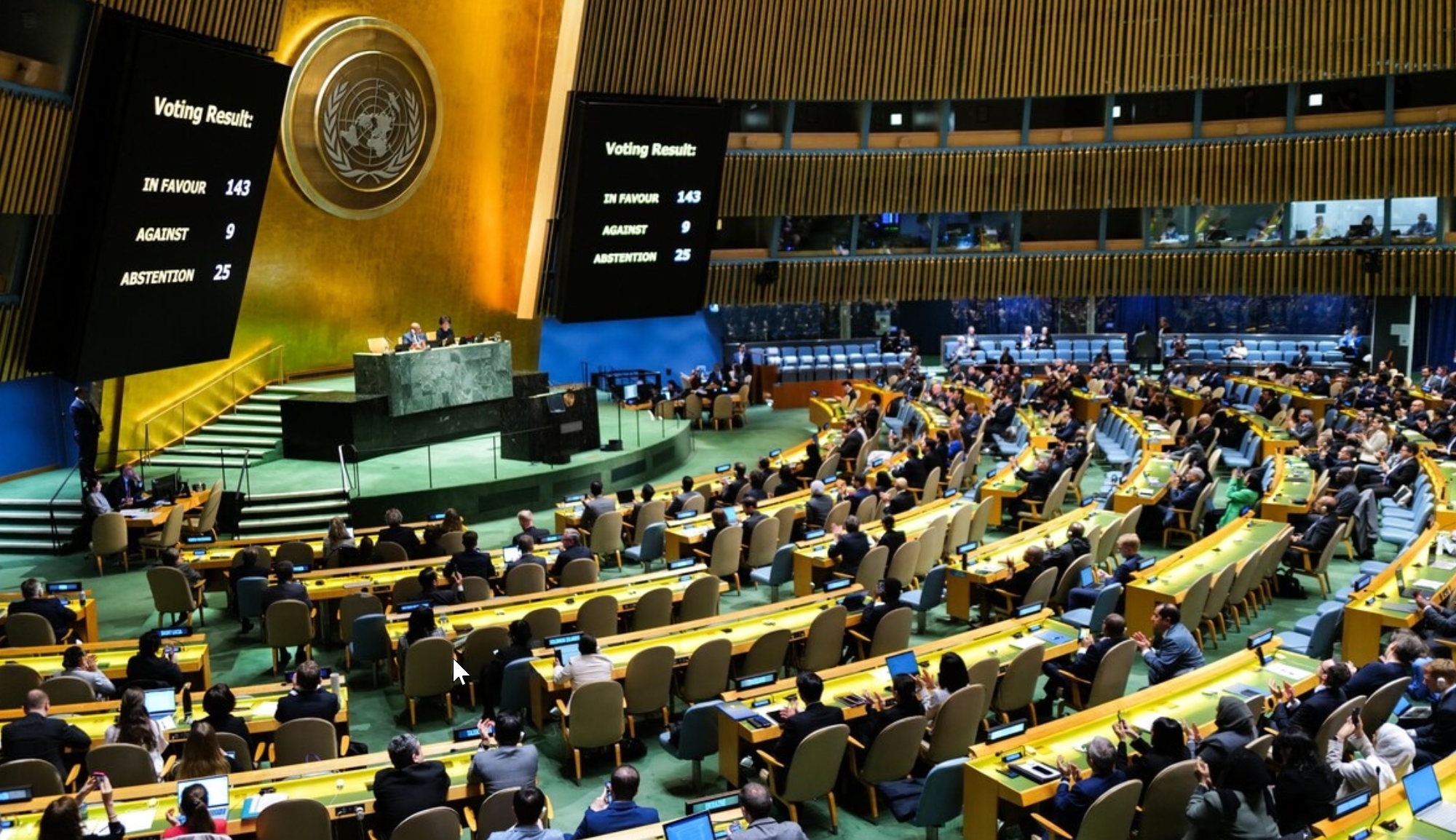UN General Assembly Supports Palestinian UN Membership Bid
On May 10, 2024, the United Nations General Assembly voted in favour of a resolution supporting Palestine’s bid for full membership in the UN. The resolution was passed with 143 votes in support, nine against, and 25 abstentions.
Previously key UN Security Council members, notably the United States and Israel had opposed the same. India voted in favour of Palestine.
Details of the UNGA Voting
The General Assembly’s resolution does not instantly grant Palestine full UN membership but qualifies them as eligible for accession. This move comes after a U.S. veto in the Security Council that blocked Palestine’s immediate membership. The resolution was framed as a request to the Security Council to “reconsider the matter favourably,” indicating a push for a reevaluation.
Palestinian Advocacy and Opposition Remarks
During the proceedings, Palestinian UN Ambassador Riyad Mansour articulated a message of peace and freedom, stressing that supporting the resolution was a vote for Palestinian existence and not against any other state. In stark contrast, Israeli UN Ambassador Gilad Erdan accused the General Assembly of violating the UN Charter, symbolically shredding a copy during his speech, reflecting deep-seated geopolitical tensions.
Implications of the Resolution
The resolution enables Palestine to enjoy additional rights and privileges from September 2024, including occupying a seat among UN member states in the assembly hall, albeit without a voting right. Currently, Palestine holds the status of a non-member observer state, a position that recognises their statehood to some extent, a status granted back in 2012.
US Response and Legislative Actions
Following the vote, the Palestinian mission expressed that the resolution was crucial for supporting the two-state solution at a critical moment. However, the U.S. maintained that the path to statehood should be through direct negotiations. Additionally, any UN organization granting full membership to Palestine risks U.S. funding cuts under American law, a policy underlined by a new bill introduced by U.S. Republican senators aiming to tighten these financial restrictions.
Broader UN Vision and Ongoing Conflicts
United States has historically advocated for two states, Israel and Palestine, to coexist peacefully within secure and recognized borders. This vision aligns with the territories outlined in the 1967 war. The ongoing conflict, including recent escalations with Hamas, poses significant challenges to achieving these aims, highlighting the complex and volatile nature of the path towards peace and recognition in the region.
About United Nations General Assembly
United Nations General Assembly is one of the six principal organs of the United Nations, serving as the main deliberative, policymaking, and representative organ. Comprising all 193 member states of the UN, each country has an equal vote, highlighting its role as a platform for equal representation.
Founded in 1945 under the UN Charter, the General Assembly meets annually under a president elected from the member states. Key functions include overseeing the budget, appointing non-permanent members to the Security Council, and making recommendations in the form of General Assembly Resolutions.
It also plays a crucial role in setting standards and directing global discourse on issues covering international law, human rights, and international security.
About Palestinian bid for full UN membership
The Palestinian Authority has sought full membership status at the United Nations to enhance its international recognition and sovereignty claims over disputed territories. Since 2012, Palestine holds the status of a non-member observer state, allowing participation in General Assembly debates but denying a full vote.
Full UN membership, which requires Security Council approval, would solidify its state credentials, potentially boosting its leverage in Israeli-Palestinian peace negotiations. However, several attempts have been thwarted, primarily due to opposition from the United States and its allies, reflecting the complex geopolitical sensitivities surrounding the Israeli-Palestinian conflict.
Month: Current Affairs - May, 2024
Category: International / World Current Affairs








